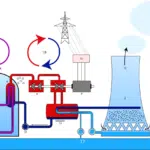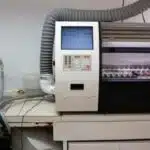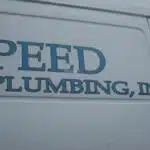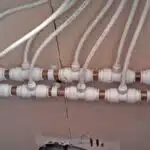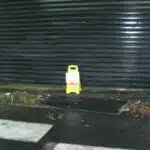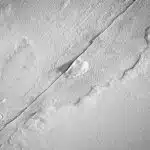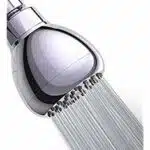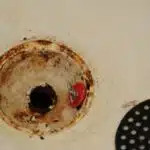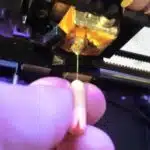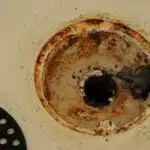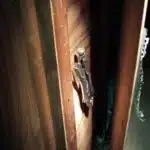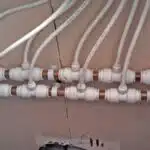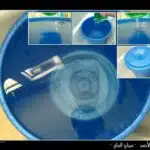Sewer gas smell is a common problem that can cause significant discomfort and health hazards if not addressed promptly. The smell is usually caused by the presence of hydrogen sulfide and other gases that are generated from decomposing organic matter in sewage systems. Sewer gas smells can be challenging to identify and remove, but with proper guidance, anyone can tackle this issue effectively.
As a plumbing/drainage expert, it’s essential to understand the causes of sewer gas smells, how to identify them, and the best methods for removing them. In this article, we will explore the signs that indicate you have a sewer gas problem, the dangers associated with it, and practical tips on how to detect and eliminate sewer gas smells in your home or commercial property. By following our expert advice, you’ll be able to protect yourself and others from the harmful effects of sewer gas smells while ensuring optimal hygiene and comfort in your living or working space.
Understanding The Dangers Of Sewer Gas
To properly identify and remove a sewer gas smell, it is important to first understand what sewer gas is and its composition. Sewer gas is a mixture of gases that are produced by the breakdown of organic matter in wastewater. It typically consists of methane, carbon dioxide, hydrogen sulfide, and ammonia. These gases are highly flammable and can be dangerous in high concentrations.
Aside from being hazardous to human health, sewer gas also has negative effects on the environment. When released into the atmosphere, it contributes to air pollution and global warming. Methane, one of the main components of sewer gas, is a potent greenhouse gas that has an impact on climate change. Hydrogen sulfide also contributes to environmental issues as it produces sulfuric acid when combined with water vapor in the air.
It is important to take sewer gas seriously as prolonged exposure can lead to serious health problems such as respiratory issues, headaches, dizziness, nausea, and even death in extreme cases. Understanding the dangers associated with sewer gas will help homeowners take necessary precautions when dealing with potential sewer gas leaks or smells. In the next section, we will discuss common causes of sewer gas smells and how they can be prevented.
Common Causes Of Sewer Gas Smells
Improper ventilation is one of the primary causes of sewer gas smells, typically resulting from inadequate air circulation. Broken sewer pipes can also be a source of an unpleasant sewer gas smell, often due to cracks or leaks allowing odors to escape. Clogged drains can be another source of sewer gas smells, particularly if the clog is trapping water and creating a breeding ground for bacteria. Sewer gas smells can also result from blocked or disconnected vent pipes, which can lead to a buildup of pressure and allow odors to escape. If left untreated, any of these conditions can lead to a health risk from exposure to the sewer gas. To mitigate sewer gas smells, proper ventilation, regularly scheduled inspections and maintenance of sewer pipes, and unclogging drains are all preventative measures that should be taken.
Improper Ventilation
The improper ventilation of plumbing systems is one of the most common causes of sewer gas smells. Imagine a closed and stuffy room with poor air circulation, where gas builds up over time until it becomes unbearable to breathe. Similarly, inadequate ventilation maintenance or repair in plumbing systems can lead to the accumulation of sewer gases, which can cause health problems and unpleasant odors.
As a plumbing/drainage expert, it is crucial to identify any signs of improper ventilation in the plumbing system, such as slow drains or gurgling noises. These signs may indicate that there is a blockage in the venting system or that it has been damaged. Regular ventilation maintenance can help prevent these issues from occurring and ensure proper airflow throughout the pipes.
In conclusion, if you notice a sewer gas smell in your home or workplace, improper ventilation may be the culprit. It is essential to contact a professional plumber immediately to assess and repair any issues with your ventilation system. Regular ventilation maintenance can help prevent future problems, ensuring clean and fresh air for everyone’s health and well-being.
Broken Sewer Pipes
Another common cause of sewer gas smells is broken sewer pipes. A sewer pipe can break due to several reasons, such as aging, shifting soil, or physical damage. When a sewer pipe breaks, it can release noxious gases into the surrounding environment, leading to unpleasant odor and potential health hazards. As a plumbing/drainage expert, it is crucial to identify any signs of a broken sewer pipe early on to prevent further damage.
One sign of a broken sewer pipe is slow drains or backed-up toilets. If your sink, shower, or toilet is draining slowly or not at all, it may indicate a blockage caused by a broken pipe. Another sign is standing water in your yard or basement. A broken sewer pipe can lead to excess water accumulation in areas close to the damaged section. Additionally, if you notice an unusual odor that persists even after cleaning and ventilating your home or workplace thoroughly, it may be time to inspect your sewer pipes for damage.
To prevent broken sewer pipes from causing unpleasant odors and potential health hazards in your home or workplace, regular maintenance and inspection are crucial. As a plumbing/drainage expert, it is essential to educate clients about the causes of broken sewer pipes and provide them with preventative measures. These measures include avoiding flushing non-biodegradable items down the toilet and scheduling regular inspections of their plumbing system by professionals like us. By doing so, we can ensure clean and fresh air for everyone’s health and well-being while serving our clients’ needs effectively.
Clogged Drains
Clogged drains are another common cause of sewer gas smells that plumbing and drainage experts encounter. When water cannot flow freely through the pipes, it can create a buildup of organic matter, hair, grease, and other debris that emit unpleasant odors. These clogs can occur in various parts of the plumbing system, including the sink, shower, toilet, and floor drain.
As a plumbing/drainage expert, it’s essential to educate clients on how to prevent clogged drains by avoiding flushing non-biodegradable items down the toilet or pouring grease down the sink. Additionally, there are DIY remedies available for minor clogs that homeowners can do themselves before seeking professional help. For example, they can use a plunger or a drain snake to dislodge blockages from their pipes.
However, some common clogs require professional assistance from a licensed plumber or drainage expert. These include tree roots growing into sewer lines or corroded pipes caused by harsh chemicals or acidic substances. By identifying these issues early on and providing effective solutions to clients promptly, we can prevent further damage to their plumbing system and ensure fresh air quality in their homes or workplaces.
Signs Of A Sewer Gas Problem
Sewer gas smells are an unpleasant problem that can arise in any property with plumbing. In the previous section, we discussed some common causes of sewer gas smells. In this section, we will explore how to detect and deal with these odors.
One of the first steps in dealing with sewer gas problems is detecting leaks. One way to do this is by using a handheld combustible gas detector, which can detect methane and other gases present in sewer gas. Another way is to perform a visual inspection of your plumbing system, looking for areas where pipes may be damaged or disconnected. You may also check for dry drain traps or blocked vent pipes, as these can cause sewer gases to enter your home.
If you have detected a sewer gas leak, there are several ways to deal with the odor. First and foremost, address the source of the problem by fixing any damaged pipes or vents. You may also pour water down infrequently used drains or add more water to existing traps in order to fill them up and prevent gases from escaping into your living space. Finally, consider using air fresheners or deodorizers specifically designed for neutralizing sewer odors.
Sewer gas smells are not only unpleasant but can also be harmful if left unchecked. In order to ensure the safety and comfort of your household, it is important to identify and deal with any potential sources of these odors quickly and efficiently. In the subsequent section, we will discuss how sewer gas enters your home or property and what measures you can take to prevent this from happening.
How Sewer Gas Enters Your Home Or Property
Sewer gas can enter your home or property through various ways. Two common sources of sewer gas are drains and vents. Drains that are dry or infrequently used can be a source of sewer gas because the water in the trap evaporates, allowing the gas to escape. Vents, on the other hand, can become blocked by debris or animals, causing a buildup of pressure that pushes sewer gas into your home.
To prevent sewer gas from entering your home or property, it’s essential to seal off any potential entry points. One way to do this is by ensuring all drain traps have enough water to create a barrier between the sewer system and your home. Run water down infrequently used drains regularly and pour hot water down them occasionally to prevent grease buildup. Additionally, make sure all vent openings are free from obstructions like leaves, dirt or debris.
Another effective way of preventing sewer gas from entering your property is by having regular plumbing maintenance checks done by licensed professionals. They will check all pipes and drains for blockages or damage that could allow sewer gas to seep into your home. By taking these preventive measures, you can minimize the chances of experiencing unpleasant smells in your living spaces and protect yourself and loved ones from harmful gases.
Moving forward, it’s important to understand why sewer gases smell bad and how they can affect human health if inhaled for prolonged periods of time.
Why Sewer Gas Smells Bad
As the old saying goes, “where there’s smoke, there’s fire.” Similarly, where there’s a sewer gas smell, there’s likely an underlying problem causing it. There are several causes of this unpleasant odor, with some being more severe than others. Identifying the root cause is key to eliminating the smell.
One common cause of sewer gas smells is dry plumbing fixtures. When water in a trap evaporates, it leaves an open path for sewer gases to escape into your home or business. Another cause could be a blocked vent stack that allows pressure to build up in drain pipes and push gases into your living space. Additionally, damaged or improperly installed plumbing systems can also lead to sewer gas leaks.
The effects of these smells can range from minor irritation to serious health risks. The immediate effect is discomfort and annoyance from the foul odor present in your home or workplace. If left unaddressed, exposure to high levels of sewer gas can lead to headaches, dizziness, nausea, and even asphyxiation in extreme cases. It is important to address any signs of sewer gas immediately and seek professional help if needed.
With a variety of causes and potential health risks associated with sewer gas smells, it is crucial to take them seriously and act quickly. In the subsequent section, we will discuss the specific health risks associated with exposure to these gases and how they can be prevented through proper maintenance and repair practices.
Health Risks Associated With Sewer Gas
As previously discussed, sewer gas is unpleasant due to its composition of various toxic and flammable gases. However, the risks associated with sewer gas extend beyond just an unpleasant smell. Inhaling high concentrations of these gases can lead to serious health problems, particularly for individuals with pre-existing respiratory conditions. The presence of sewer gas in your home or workplace should not be taken lightly.
Sewer gas contains a variety of harmful particles that can cause irritation to the respiratory system when inhaled. Prolonged exposure to these pollutants can result in nausea, headaches, dizziness and even asphyxiation if left unchecked. Additionally, methane and hydrogen sulfide are highly flammable gases that pose a potential fire hazard if they are allowed to accumulate in enclosed spaces.
To minimize the risks associated with sewer gas, it’s important to take prompt action when detecting its presence. While some minor cases may be resolved through DIY methods such as pouring water down unused drains or sealing cracks around pipes, more severe cases require professional intervention. If you experience persistent symptoms such as headaches, nausea or dizziness or even detect the smell of natural gas, it’s important to contact a licensed plumber immediately to assess and address the situation before it becomes a major health or safety hazard.
When To Call A Professional
- A sewage smell in the home may indicate a major plumbing problem, such as a cracked or broken drain pipe, a blocked drain, or a full septic tank.
- Depending on the severity of the problem, the cost of professional plumbing services can range from a few hundred dollars to a few thousand dollars.
- Attempting to fix a major plumbing problem without proper training and experience can result in further damage and create safety hazards for both the homeowner and the plumbing professional.
- Homeowners should be alert to telltale signs of a major plumbing problem, such as gurgling sounds from the drains, slow or backed-up drains, and an unpleasant sewage smell.
- If any of these signs are present, it is recommended to call a professional plumber immediately in order to avoid the cost of a major plumbing repair.
- Professional plumbing services can quickly diagnose and repair major plumbing problems, ensuring the safety of the homeowner and their home.
Signs Of A Major Problem
Identifying and removing a sewer gas smell is crucial for maintaining a safe and healthy home environment. As experts in plumbing and drainage systems, we understand that there are common causes of this problem, such as cracked pipes, blocked vents, or damaged sewer lines. However, it’s important to recognize the signs of a major problem to avoid potential health hazards.
One of the key indicators of a serious issue is if the sewage odor persists even after running water down your drains or flushing your toilets. If you notice an increase in gas smells or hear gurgling noises coming from your pipes, it could be a sign that there is a blockage in your system. Additionally, if you see any standing water or notice slow-draining sinks or tubs, it may indicate that there is a clog somewhere in your pipes.
Detecting subtopic early can prevent further damage to your home and minimize the risk of exposure to harmful gases like methane and hydrogen sulfide. If you suspect that there is an issue with your plumbing or drainage system, do not hesitate to call a professional for assistance. They will be able to assess the situation and determine if any repairs or replacements are necessary.
In conclusion, recognizing the signs of a major problem when it comes to sewer gas smells is essential for protecting yourself and your family from potential health risks. By knowing what to look out for and calling in a professional at the first sign of trouble, you can ensure that your plumbing and drainage system remain in good working order for years to come.
Cost Considerations
When to call a professional plumber is an important decision that homeowners have to make when faced with sewer gas smell issues. While some minor problems can be fixed with DIY solutions, major issues require the expertise of a licensed professional. However, one factor that may deter homeowners from calling a plumber is the cost considerations.
It’s understandable for homeowners to want to save money and opt for budget-friendly solutions. Fortunately, there are cost-saving tips that professionals can offer to address sewer gas smell problems without breaking the bank. For instance, instead of replacing an entire sewer line, plumbers can perform trenchless repairs that only require minimal digging and less labor costs. Additionally, routine maintenance checks can prevent major problems from occurring in the first place.
Despite the initial investment of hiring a professional plumber, it’s essential to consider the long-term benefits and potential cost savings of timely repairs and maintenance. Neglecting minor issues can lead to costly damages down the line, such as water damage or structural damage. By addressing sewer gas smell problems promptly with the help of a professional plumber, homeowners can avoid expensive repairs in the future and ensure their home remains safe and healthy for their family.
Safety Hazards
When it comes to dealing with sewer gas smells in your home, one of the most important considerations is ensuring the safety of everyone involved. Sewer gas contains a variety of harmful substances, including methane, carbon dioxide, and hydrogen sulfide, all of which can pose significant health risks if not handled properly. As such, it’s crucial to take all necessary precautions when dealing with these issues.
One essential step in preventing safety hazards associated with sewer gas smells is ensuring proper ventilation. This means opening windows and doors to allow fresh air to circulate throughout the affected area. In some cases, homeowners may need to use fans or other ventilation equipment to ensure that the space is adequately aerated. It’s also important to avoid using any electrical appliances or smoking in areas where sewer gas is present.
Another critical aspect of handling sewer gas smell problems safely is using appropriate protective equipment. This includes gloves, goggles, and respirators designed specifically for handling hazardous materials like those found in sewer gas. These items can help protect plumbers and other professionals from exposure to harmful substances while they work on repairing or cleaning up the affected area.
In conclusion, when faced with sewer gas smell issues in your home, it’s important to prioritize safety above all else. This means taking measures like ensuring proper ventilation and using appropriate protective equipment when working on repairs or cleanup efforts. By doing so, you can help minimize the risk of health hazards associated with these problems and keep your home safe for you and your family.
Diy Methods For Removing Sewer Gas Smells
DIY Methods for Removing Sewer Gas Smells:
If you are experiencing a sewer gas smell in your home, there are several DIY methods that can help get rid of the unpleasant odor. The first step is to identify the source of the smell. Check your drains, toilets, and other plumbing fixtures for blockages or leaks. If you find any issues, make sure to address them before moving on to removing the smell.
One effective solution is to pour hot water down your drains. This helps break up any build-up of grease or other substances that may be causing the odor. Another option is to use baking soda and vinegar. Mix equal parts baking soda and vinegar and pour it down your drains. Let it sit for about 30 minutes before rinsing with hot water.
You can also try using activated charcoal or an odor absorber designed specifically for sewer gas smells. These products work by absorbing the odor-causing molecules in the air. Make sure to follow the instructions carefully when using these products, as they can have different application methods depending on the brand.
By following these DIY methods, you should be able to effectively remove sewer gas smells from your home without having to call in a professional plumber. However, if you continue to experience issues with sewer gas smells even after trying these methods, it may be time to check your plumbing and drainage systems more thoroughly for any underlying problems that need addressing.
Checking Your Plumbing And Drainage Systems
After trying out various DIY methods to remove the sewer gas smell, it is crucial to take a closer look at your plumbing and drainage systems. This step is essential in identifying the root cause of the problem and preventing future occurrences. Plumbing inspection and drainage maintenance are necessary to ensure that wastewater flows correctly through pipes and out of your home.
Plumbing inspection involves checking for leaks, cracks, or blockages in pipes that may be causing the sewer gas odor. This process requires a professional plumber who can identify any issues with your plumbing system quickly. A thorough inspection will help you determine if there are any underlying problems, such as damaged or corroded pipes, which can cause sewer gas smells.
Drainage maintenance is also an essential aspect of keeping your plumbing system running smoothly. Regular cleaning of kitchen sink drains, bathroom drains, and shower drains can prevent clogs from forming and odors from escaping into your home. Additionally, maintaining proper ventilation in bathrooms and kitchens can help regulate air pressure in your plumbing system to prevent sewer gas smells.
- When inspecting your plumbing system:
- Check all fixtures for leaks or damage
- Look for signs of corrosion or rust on pipes
- When maintaining your drainage system:
- Practice regular drain cleaning with baking soda and vinegar
- Use mesh screens on drains to catch debris before it enters the pipe
By regularly inspecting your plumbing system and practicing drainage maintenance, you can prevent sewer gas smells from becoming an issue in your home. Ignoring these steps can lead to more significant issues like sewage backups or burst pipes that require costly repairs. It’s important to take care of your plumbing and drainage systems to ensure their longevity while keeping your family safe from harmful pollutants like methane gas.
Inspecting Your Sewer Lines
- Inspecting sewer lines for blockages should include a visual inspection of the pipes and drains, as well as a check for any signs of corrosion or damage.
- To investigate plumbing connections, each connection should be tested for water tightness, and any pipe fittings should be inspected for signs of leaks.
- If a blockage is suspected, a sewer line camera can be used to identify the exact location and cause of the issue.
- If a sewer gas smell is present, it is important to check for any connections that are not properly sealed or ventilated, as this can be the source of the smell.
Checking For Blockages
In order to inspect your sewer lines for potential blockages, it is crucial to understand the signs of plumbing blockages. When there are sewer line obstructions, you may notice slower draining water or gurgling sounds coming from your drains. These symptoms can indicate that there is a buildup of debris in your pipes, which can eventually lead to a complete clog. Additionally, if you notice foul odors emanating from your drains or your plumbing fixtures, this could be a sign that there is a blockage in your sewer line.
Once you have identified potential blockages in your sewer line, the next step is to check for obstructions. One way to do this is to use a drain snake or auger to clear out any debris that may be stuck in your pipes. If that does not work, you may need to use more advanced equipment such as a hydro jetting machine to blast away any stubborn obstructions. Professional plumbers can perform these services and use specialized cameras to identify blockages deep within your sewer line.
Checking for blockages in your sewer lines should be part of regular maintenance for homeowners and businesses alike. By identifying and removing obstructions early on, you can prevent larger issues such as burst pipes or sewage backups from occurring. It is important to seek professional help when dealing with complex plumbing issues and always prioritize safety when attempting DIY repairs on your plumbing system.
Investigating Plumbing Connections
Checking for leaks and blockages in your sewer lines is an essential part of maintaining a healthy plumbing system. However, it is also important to investigate the plumbing connections within your home or business to ensure that they are functioning properly. Problems with plumbing connections can lead to leaks, which can cause water damage and mold growth if left unchecked.
To investigate plumbing connections, it is important to first identify any potential problem areas. This can include inspecting visible pipes for signs of corrosion or wear, as well as checking for any unusual smells or sounds coming from your plumbing fixtures. You may also need to troubleshoot blockages in your drains or sewer lines, as these can be a sign of a larger issue with your overall plumbing system.
Once you have identified potential problem areas, you should hire a professional plumber to perform a thorough inspection of your plumbing connections. They will be able to use specialized equipment such as cameras and pressure gauges to identify any leaks or other issues within your pipes. By addressing these issues early on, you can prevent serious damage from occurring and keep your plumbing system running smoothly for years to come.
Cleaning Your Drain Traps And Vents
Cleaning Your Drain Traps and Vents:
Drain traps and vents are essential components of your home’s drainage system. They help prevent sewer gas from entering your living space, keeping your home safe and comfortable. However, over time, these components can become clogged with debris, reducing their cleaning effectiveness and leading to unpleasant odors. Regular drain maintenance techniques can help keep these systems functioning correctly.
The first step in cleaning your drain traps is to remove any visible debris. This could include hair, food particles, or other small objects that have become trapped in the drain. You can use a pair of pliers or a wire hanger to reach into the trap and remove these items. Once you have cleared out any visible debris, you can flush the trap with hot water to remove any remaining residue.
Vents are an often-overlooked component of your home’s drainage system but are crucial for preventing sewer gas smells. To clean your vents, start by locating them on the roof of your home (if applicable). Remove any debris or obstructions around the vent opening carefully. Then use a plumbing snake or wire brush to clean out the inside of the vent pipe thoroughly. A plumber can also perform this task if you’re not confident doing it yourself.
Keeping your drain traps and vents clean is critical for maintaining good indoor air quality in your home. By following these simple maintenance tips, you can ensure that your drainage system remains free from obstructions and working correctly for years to come.
Moving forward, let’s discuss using natural remedies to eliminate sewer gas smells effectively from your home.
Using Natural Remedies To Eliminate Sewer Gas Smells
After cleaning your drain traps and vents, you may still notice a persistent sewer gas smell in your home. This can be caused by a variety of issues, including cracked pipes or improper venting. In this section, we will discuss DIY remedies that use natural ingredients to eliminate sewer gas smells.
Vinegar and Baking Soda: Mix one cup of vinegar with one cup of baking soda and pour it down the affected drain. Let it sit for 10-15 minutes before flushing with hot water.
Lemon Juice and Salt: Mix equal parts lemon juice and salt to create a paste. Rub the paste onto the affected area and let it sit for 30 minutes before washing away with hot water.
Activated Charcoal: Place activated charcoal near the affected area to absorb any odors.
Essential Oils: Add a few drops of essential oils such as peppermint, eucalyptus, or tea tree oil to a diffuser or spray bottle filled with water and spray around the affected area.
These DIY remedies can help alleviate sewer gas smells temporarily, but it’s important to address the root cause of the issue to prevent them from returning in the future. Regular maintenance such as cleaning your drains and vents, as well as inspecting for any cracks or damage in your plumbing system can help prevent these unpleasant odors from permeating your home. By taking proactive steps, you can ensure a fresh and odor-free environment for you and your family.
Preventing Sewer Gas Smells In The Future
As a plumbing or drainage expert, it is crucial to ensure that your clients don’t experience sewer gas smells in their homes. While identifying and removing the smell is important, preventing the issue from happening in the future should be a top priority.
Preventing leaks is one of the most effective ways to prevent sewer gas smells. Regularly inspecting pipes, drains, and fixtures can help you identify any leaks early on and fix them before they turn into bigger problems. It’s also essential to replace old or damaged pipes as soon as possible.
Regular maintenance is another critical aspect of preventing sewer gas smells. Encourage your clients to schedule annual inspections with a professional plumber or drainage technician to ensure that their systems are in good working order. This way, any potential issues can be identified and dealt with before they cause a foul odor in their home.
By taking these preventative measures, you’ll be able to provide your clients with peace of mind knowing that their plumbing and drainage systems are functioning correctly. In the next section, we will discuss some tips on maintaining your plumbing and drainage systems to further prevent sewer gas smells from occurring.
Maintaining Your Plumbing And Drainage Systems
To prevent sewer gas smells, regular maintenance is key. Plumbing and drainage systems are prone to wear and tear over time, which can lead to leaks or blockages that cause unpleasant odors. By taking a proactive approach to maintenance, you can avoid these issues and keep your home smelling fresh.
One important aspect of regular maintenance is scheduling professional inspections. While you can do some basic checks yourself, such as looking for signs of leaks or blockages, a trained expert will be able to identify any potential problems before they become major issues. They can also provide guidance on how often you should have your plumbing and drainage systems inspected based on the age and condition of your property.
In addition to professional inspections, there are some other steps you can take to maintain your plumbing and drainage systems:
- Regularly clean drains and pipes using an enzymatic drain cleaner
- Avoid pouring grease or oil down the drain
- Use a hair catcher in showers and tubs to prevent clogs
- Install backflow prevention devices to protect against sewage backups
By following these tips and staying on top of regular maintenance, you can help ensure that your plumbing and drainage systems are in good working order – which will not only prevent sewer gas smells but also reduce the risk of more serious problems like water damage or mold growth.
As a homeowner or property owner, it’s important to prioritize the safety and comfort of those who live or work in your space. By taking a proactive approach to maintaining your plumbing and drainage systems, you’ll not only avoid unpleasant odors but also protect against potentially costly damage. Whether you choose to handle some basic maintenance tasks yourself or rely on the expertise of professionals, regular attention to your plumbing system will keep things running smoothly for years to come.
Final Thoughts: Staying Safe And Comfortable In Your Home Or Property
As a plumbing/drainage expert, it is important to emphasize the significance of staying safe and comfortable in your home or property. Regular maintenance should be conducted to ensure the proper functioning of your drainage system. This includes both residential and commercial properties.
One of the most common problems encountered by homeowners is sewer gas smell. To prevent this issue, it is essential to avoid flushing down inappropriate materials such as wipes, feminine hygiene products, cooking grease, and oil. These items can clog pipes and cause backups that may lead to foul odors.
Regular maintenance is crucial in preventing sewer gas smells from permeating throughout your property. Professional plumbers recommend conducting annual inspections of your drainage system to identify potential issues before they become costly repairs. Tips for prevention should also be implemented such as installing screens on all drains and using natural enzymes or vinegar solutions to clean and maintain your pipes.
| Tips for Prevention | Importance of Regular Maintenance | Benefits |
|---|---|---|
| Avoid flushing inappropriate materials | Identifies potential issues before they become costly repairs | Reduced repair costs |
| Install screens on all drains | Ensures proper functioning of drainage systems | Improved indoor air quality |
| Use natural enzymes or vinegar solutions for pipe maintenance | Prevents sewer gas smell from permeating throughout the property | Increased lifespan of pipes |
In conclusion, taking proactive measures towards maintaining your drainage system can help keep you safe and comfortable in your property. Implementing tips for prevention such as avoiding flushing inappropriate materials, installing screens on all drains, and using natural solutions can help prevent sewer gas smells from occurring. Regular maintenance through professional inspections can identify potential issues before they become costly repairs while ensuring the proper functioning of your drainage system leading to reduced repair costs, improved indoor air quality, and increased lifespan of pipes.
Conclusion
Sewer gas smells can be a frustrating and potentially dangerous problem for any property owner. Understanding the common causes of sewer gas smells and the signs indicating a problem is crucial in identifying and removing the smell. There are natural remedies that can help eliminate the smell, but it is important to also take preventative measures to avoid future occurrences.
Maintaining your plumbing and drainage systems is essential in preventing sewer gas problems. Regular inspections, cleaning, and repairs can help ensure that everything is functioning properly. It’s like maintaining a car – regular maintenance prevents breakdowns and costly repairs down the road.
In conclusion, identifying and removing sewer gas smells is not only about eliminating an unpleasant odor, but also about ensuring the safety of your property. By understanding the dangers of sewer gas, taking preventative measures, using natural remedies when needed, and maintaining your plumbing and drainage systems regularly, you can stay safe and comfortable in your home or property. Remember, just as neglecting a car’s maintenance can lead to disastrous consequences on the road, neglecting your plumbing and drainage systems can have disastrous consequences in your home or property.
Image Credits
- “Can You Smell Gas?” by tcees (featured)

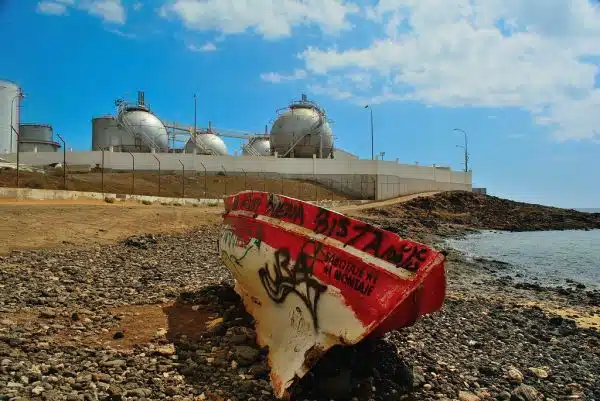
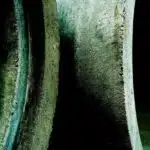
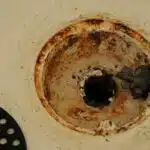





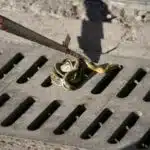

![How To Get Hair Out Of A Bathtub Drain 11 2/365 [Bathtub Drain]](https://green-life.blog/wp-content/uploads/2023/05/cOEu5edpkejq-150x150.jpg.webp)
